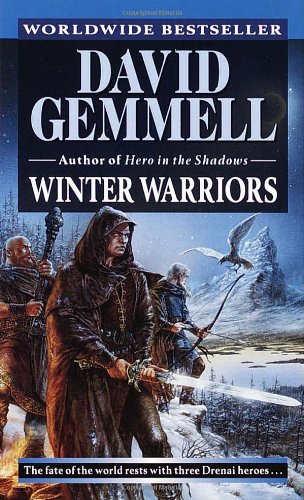 Eons ago, in the Days of Fire, demons feasted upon the souls of men the way that men feast on cattle. Those days ended when the second most powerful demon betrayed his people, damning them to purgatory so that men could inherit the Earth.
Eons ago, in the Days of Fire, demons feasted upon the souls of men the way that men feast on cattle. Those days ended when the second most powerful demon betrayed his people, damning them to purgatory so that men could inherit the Earth.
Four thousand years have passed, and the demons are beginning to come back. The dread Kreyakin, advance guard to the demon invasion, have already passed into the world of men. In order to open the portal to the other world, however, they must cast a spell requiring the lives of three kings.
Two of the kings have already been sacrificed. The third lies within the womb of the Princess Axiana.
The fate of the mortal world now lies in the hands of three aged warriors–Nogusta the swordsman, Kebra the bowman, and Bison the brute–and a handful of unlikely fugitives. Together, they must stand against the dread Kreyakin and all the forces of hell.
Alright, my attempt at a jacket blurb really doesn’t do this book justice. I want to say it was one of the best Drenai books I’ve ever read, but the truth is it’s just like every other book in the Drenai saga, which is to say that it’s awesome.
I think I’ve figured out why I love David Gemmell’s books so much. It’s because his books so perfectly capture what it means to be a man. Women read Twilight because it perfectly captures the experience of being a teenage girl in love, and Gemmell’s books–all of them–capture what it means to be a man.
I’m not just talking about the platonic ideal of manhood–I’m talking about the everyday reality as well. Two men sitting together in “companionable silence.” A warrior who scoffs when his commander sends some lesser men to accomplish a mission, then after getting chided says “I spoke in haste,” and the matter is dropped. Guys who tackle problem after problem, from fighting duels to fleeing from armies from helping the inexperienced princess with her messy childbirth, and do so without flinching, because hey, someone’s got to do it.
But the ideal is definitely there too, because in every single one of Gemmell’s books, circumstances conspire to push his characters right up to the very limits of their abilities. When that happens, their true character shines out, and the most unlikely ones rise to great feats of heroism, often sacrificing their lives in the process.
Indeed, if there’s one underlying theme in all of Gemmell’s books, it’s about heroism and what makes a true hero. It’s awesome.
The best part, though, is how Gemmell redeems even the darkest characters. I can’t say much about this book without giving away the ending, but let me just say it was extremely satisfying. Evil is not some slimy b-movie monster–it’s a quality that everyone possesses in varying degrees, alongside the potential for greatness.
In this way, I think Gemmell is the antithesis of George R. R. Martin. While both authors write in shades of gray, Martin emphasizes how even the noblest, most honorable people have an ugly black stain somewhere in their character, whereas Gemmell focuses on the potential within all of us to rise above the darkness in our souls and accomplish feats of greatness. His heroes are dark and gritty, but at the end of the day, they are heroes nonetheless.
In short, this book was awesome. If you’ve ever read a book by David Gemmell and loved it, I guarantee you’ll love this one. I certainly did.